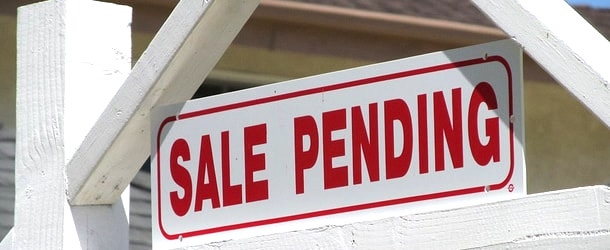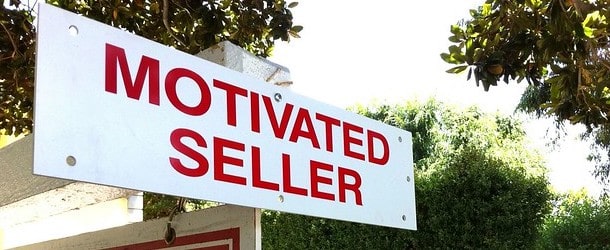
While rising property values have continued to defy expectations, could it be the end for home price appreciation after nearly a decade of gains?
There’s been talk of frothy home prices for years now, with affordability stretched even as mortgage rates hit new all-time lows.
One new forecast says the good times in the red-hot real estate market might finally be over.
At least, that’s the call from data analytics firm CoreLogic, which is predicting a 1.3% drop in home prices from April 2020 to April 2021.
Home Prices Expected to Post an Annual Decline in 2021
- Home prices were up 5.4% in April compared with April 2019
- Property values increased 1.4% month-to-month from March to April
- Month-to-month gain expected to be just 0.3% from April to May
- Annual price decline of 1.3% predicted from April 2020 to April 2021
While home prices have still gone up both year-over-year and month-over-month lately, the gains are projected to decelerate and eventually turn negative.
Home prices rose 1.4% from March to April of this year, contributing to the 5.4% annual gain, but the CoreLogic HPI Forecast calls for just a 0.3% gain from April to May.
That could represent one of the few remaining (or last) of the monthly gains for a while since they expect home prices to decline 1.3% by April 2021.
If CoreLogic is right, it would mark the first yearly drop in more than nine years, when home prices bottomed around 2011/2012.
The good news is it’s only a small annual decline, and that’s if they’re right to begin with. The pundits have been predicting higher mortgage rates and lower home prices for years now.
And they’ve been wrong year in and year out, which again speaks to how difficult it is to call a bottom or a top.
Further throwing their forecast into question is the fact that the typical spring home buying season has been pushed back a few months, so we could see home prices rise in coming months.
Cities Driven by Tourism or Oil Industry Expected to Fare Worst
- Miami and Las Vegas hurting due to less travel and fewer visitors
- Houston and West Virginia suffering from oil/gas industry slowdown
- Home prices expected to be down in 41 states by next April
- One winner is Philadelphia thanks to NYC migration related to COVID-19
CoreLogic chief economist Frank Nothaft said their forecast has home prices down a year from now in 41 states, despite record low mortgage rates and limited housing inventory.
He added, “If unemployment remains elevated in early 2021, then we can expect home prices to soften.”
As always, when looking at home prices you have to consider the local market, not just the nation as a whole.
CoreLogic expects some metros to be hit more than most, and others may actually buck the trend and see even more gains thanks to shifting demographics.
For example, already overvalued markets such as Las Vegas and Miami are expected to decline by 7.2% and 4.4%, respectively, by April 2021.
The same goes for Cape Coral-Fort Myers and North Port-Sarasota-Bradenton in Florida, and Prescott, Arizona.
In these tourist-rich destinations, the economy has taken a big hit thanks to COVID-19, which could lead to increased foreclosures and fewer eligible home buyers.
And perhaps less appetite for investment properties if not as many individuals are vacationing or moving to those cities.
CoreLogic expects a decline in property values in these metros as visitors decide instead to stay home, which could lead to the sale of vacation rentals at discounted prices.
Similarly, home prices are under pressure in Huntington, West Virginia and Houston, Texas, both of which have suffered from a collapse in the oil and gas industry.
On the other side of the coin, Philadelphia has seen a boom as New Yorkers relocate “in search of more space and privacy,” thanks to the distancing effects of the coronavirus.
The Philly metro exhibited the biggest year-over-year increase in single-family detached home prices, which surged 10.6%.
Nationwide, homes price gains are outpacing condo price gains, with single-family attached units (condos, duplexes) up 4.3% year-over-year in April 2020 compared to a 5.7% increase for single-family detached properties.
This plays to the new trend of wanting/needing more space, just like why the suburbs are apparently hot again after falling out of favor with home buyers.
Zillow seem to be on the same page regarding 2021 home prices, though they expect a drop this year followed by a recovery in 2021 resulting in no real material change.
It’s too early to tell what’s going to happen, though if you’re modeling home price gains and losses based on COVID-19, assume it’s flimsy since the pandemic still presents many more questions than answers.



